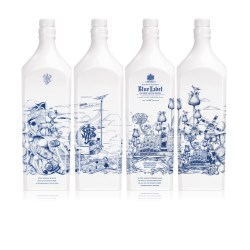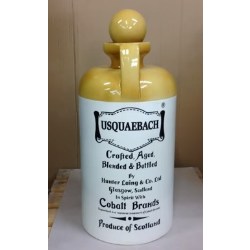Public
Wade Ceramics Ltd Documents
Wade Ceramics Ltd Locations
Wade Ceramics Ltd News
Wade Ceramics Ltd Videos
If this is your company, CONTACT US to activate Packbase™ software to build your portal.

Wade Ceramics Ltd
Wade Ceramics, established since 1810, is the world leading manufacturer of premium porcelain containers for the drinks, food and perfume industries.
Founded in 1810 as a producer of products for industry (and the home of the beloved Whimsie since 1954), today Wade Ceramics manufacture porcelain flagons for the international spirits market, as well as promotional ceramic goods and industrial components.
OUR PEOPLE - SKILLED TEAM WORK
Edward Duke, Chairman, and Paul Farmer, Managing Director, are the strategic leaders of the Wade team and their philosophy is that people are key to a thriving business and the clay that holds Wade together. Attention to the well-being of our staff, training and effective communication are vital to a happy environment and the continued success of Wade.
MANUFACTURING PROCESSES - TRADITIONAL AND PIONEERING TECHNIQUES
Wade use the skills of an experienced team to select the best ceramic processes and materials to ensure we always meet the requirements of our customers. We employ a number of traditional processes such as slip casting, plastic clay pressing and extrusion as well as pressure casting techniques to ensure dimensional accuracy and quality replication of products. We use glaze, underglaze/enamel colour and print to decorate and finish the pieces.
Immediately desirable and with a high perceived value, Wade-branded items have universal appeal. Our functional and beautiful ceramics are often kept and displayed for many years, creating long-term brand awareness and increased customer loyalty.
TECHNOLOGICAL INNOVATION - STATE-OF-THE-ART FACTORY MACHINERY
Our vision of a new factory equipped with the most advanced, fully automated plant and machinery for ceramic hollowware production came to fruition in 2010 when it was officially opened by the Duke of Kent. We work hard to constantly keep abreast of developments and invest in proven technology to stay ahead of competitors.
CORPORATE SUSTAINABILITY - REDUCE, RE-USE AND RECYCLE
Wade is conscious of its environmental responsibilities and strives to improve green credentials by utilising waste heat from kilns to dry out products. Waste water is recycled through an effluent treatment plant, reused to clean machinery. Excess clay is salvaged and any broken product, biscuit or glaze is ground to dust by a local manufacturer to be remade into tiles.








